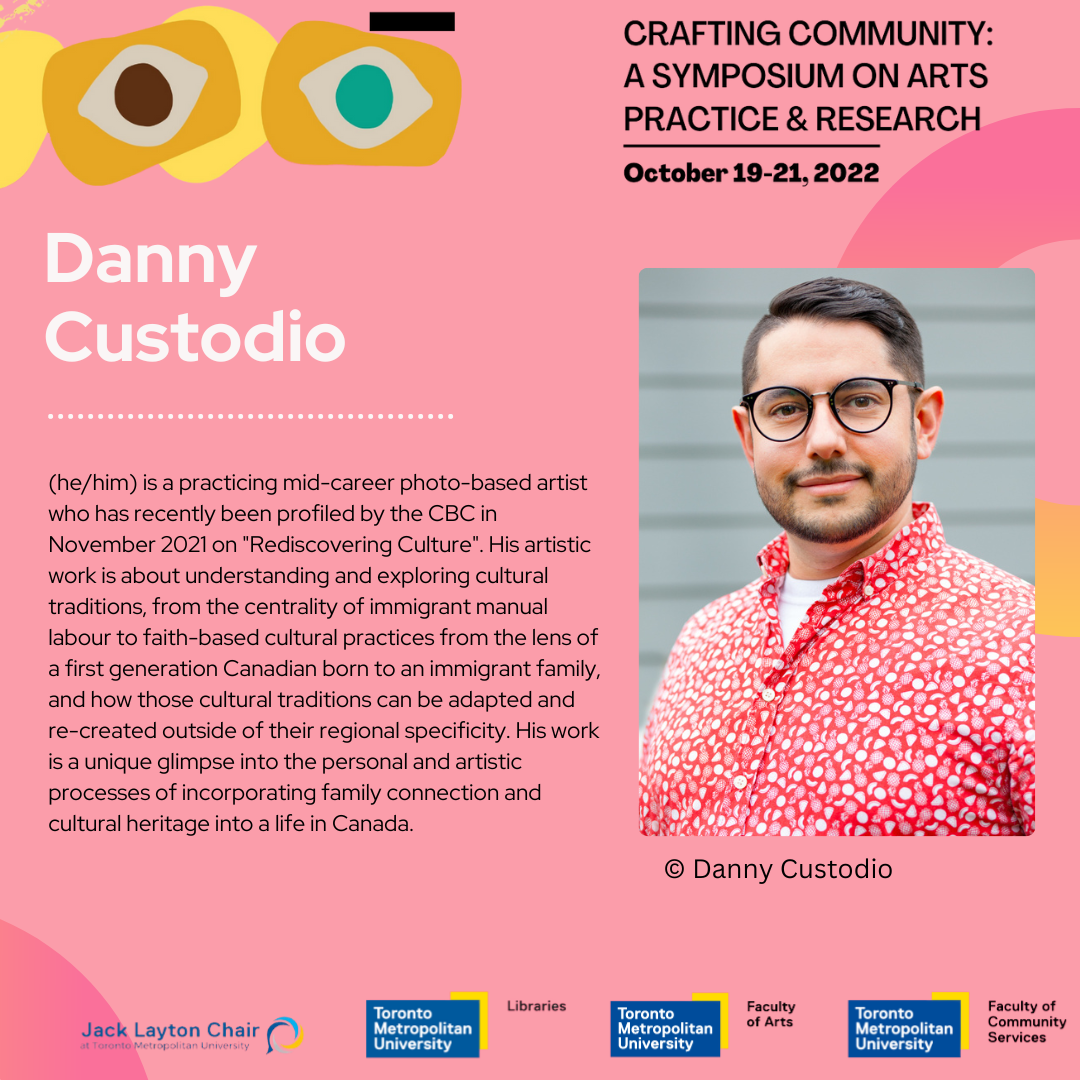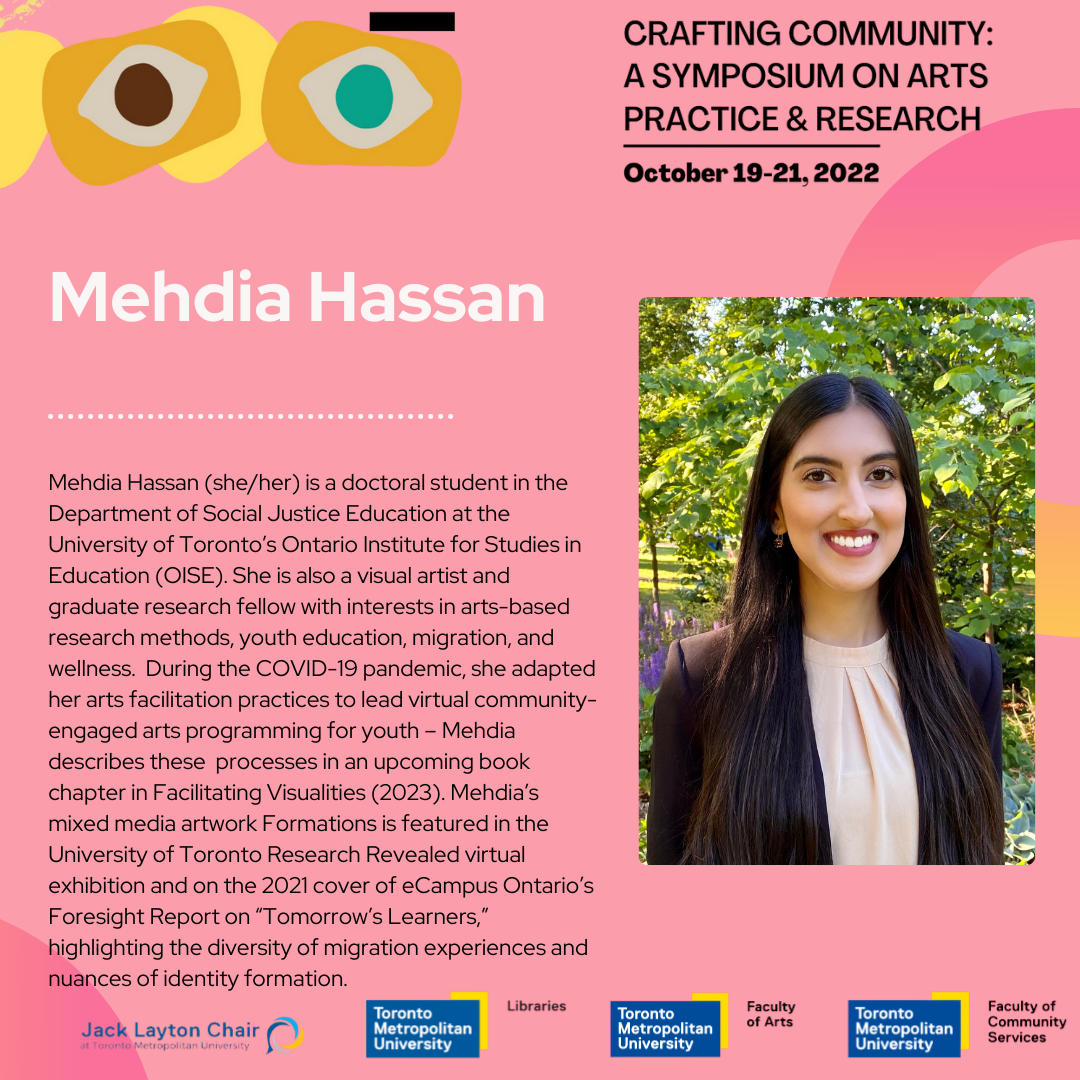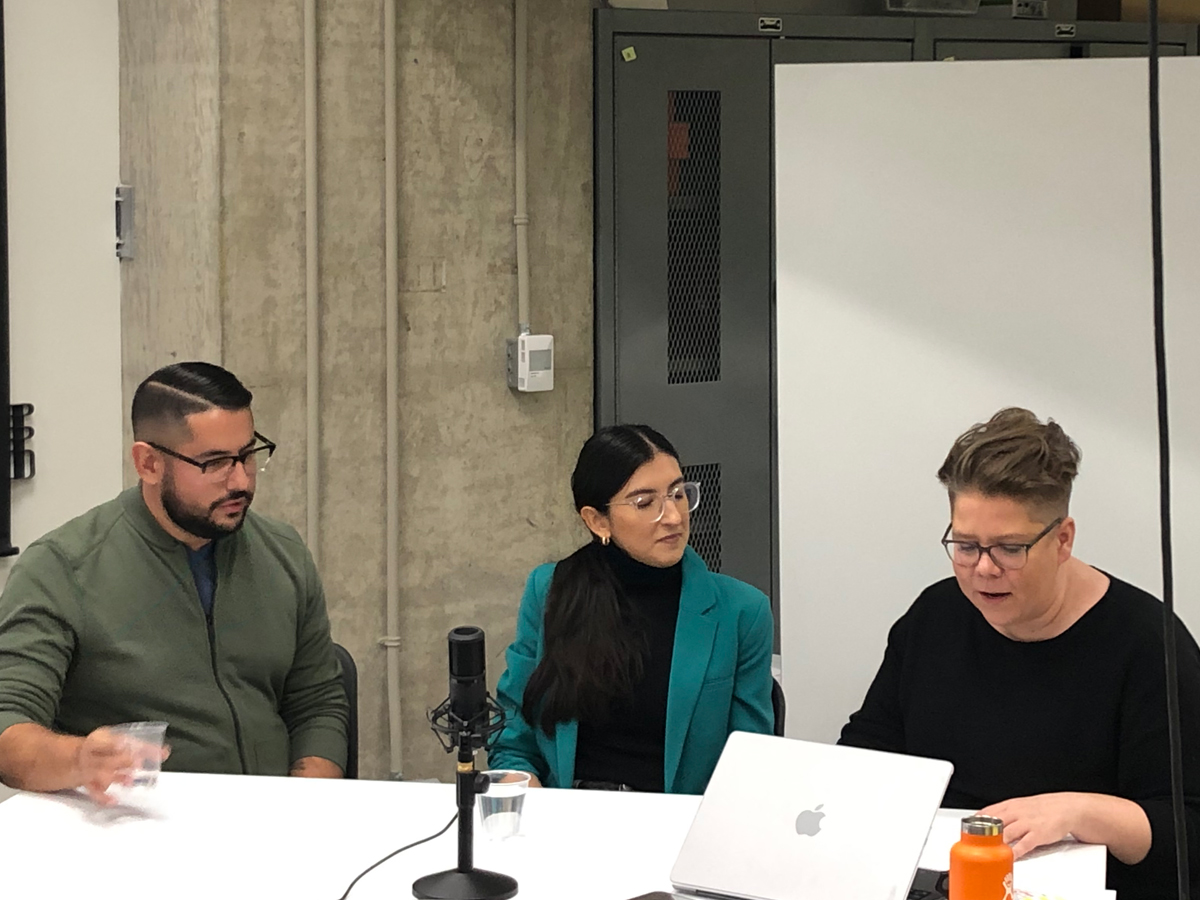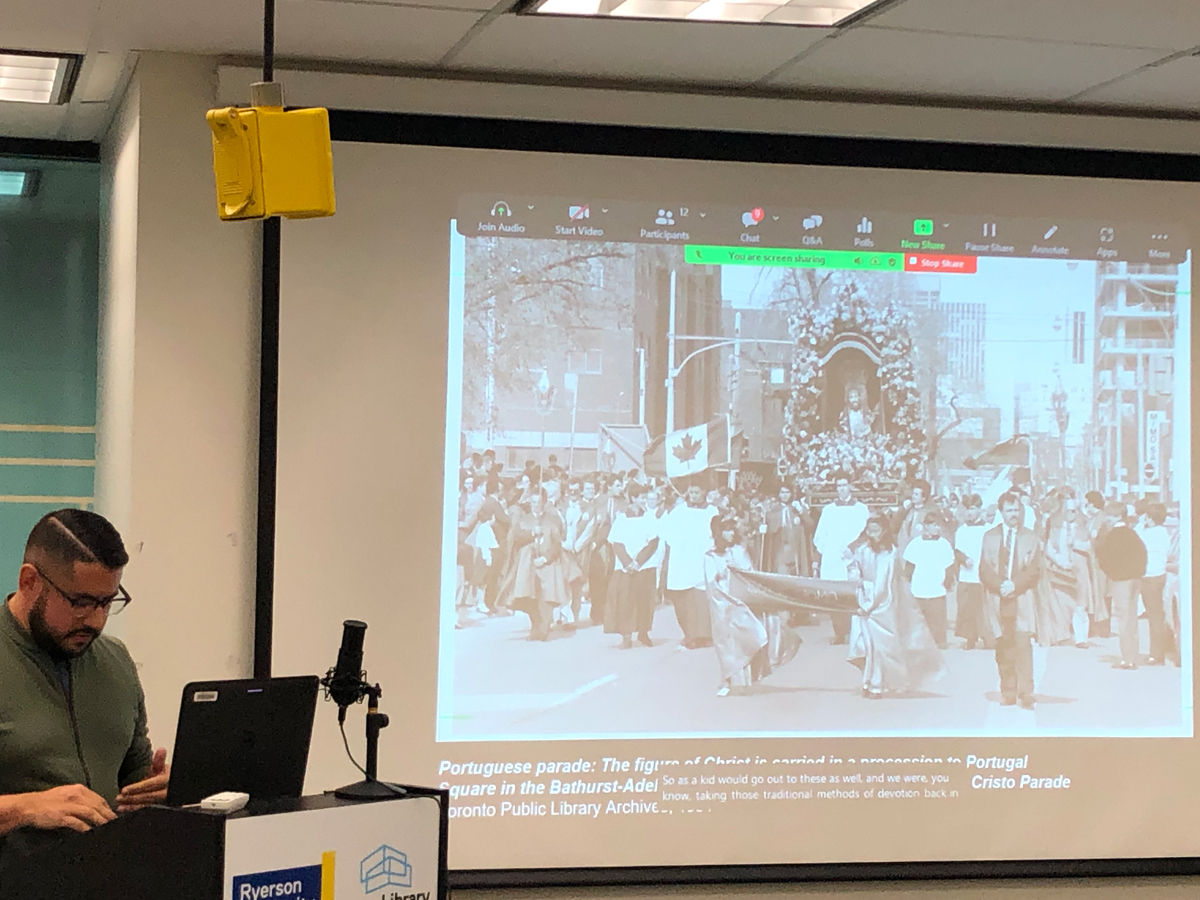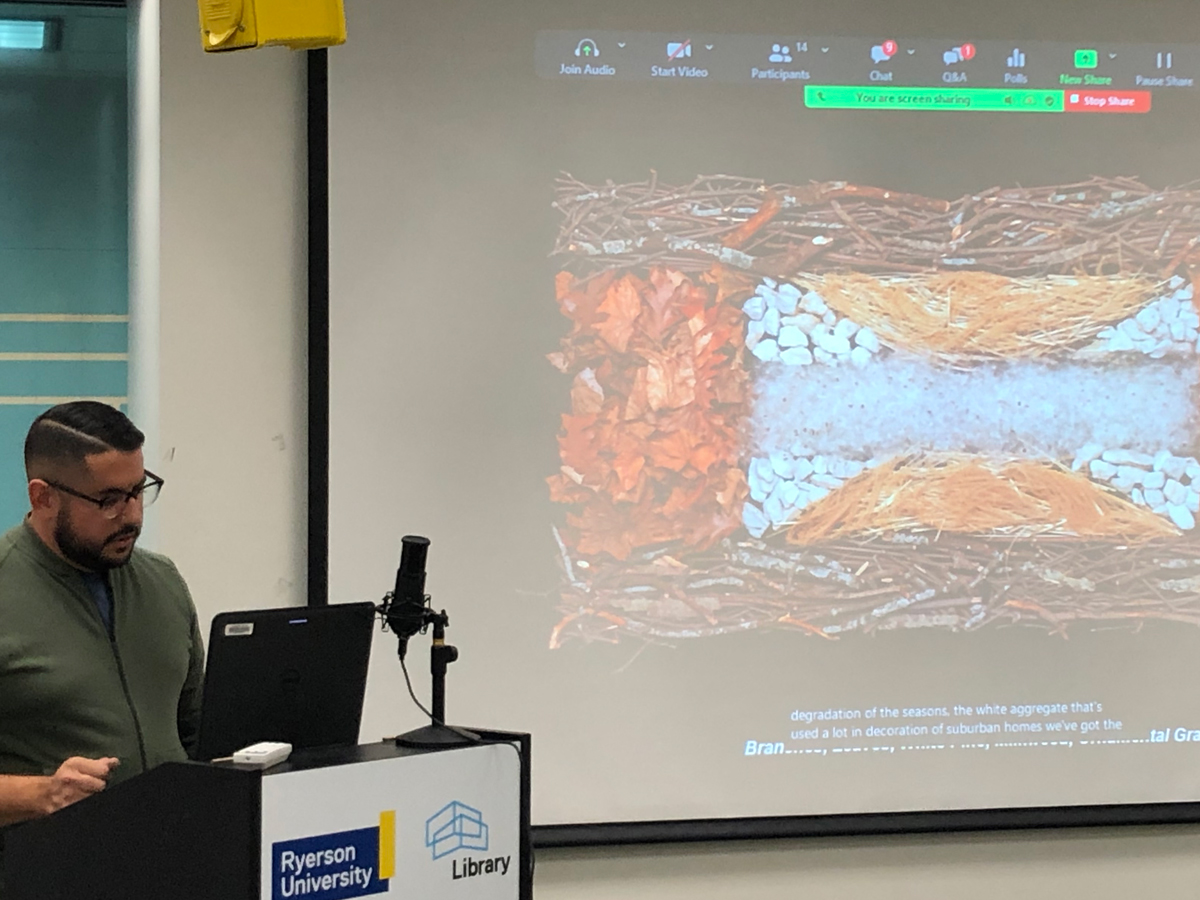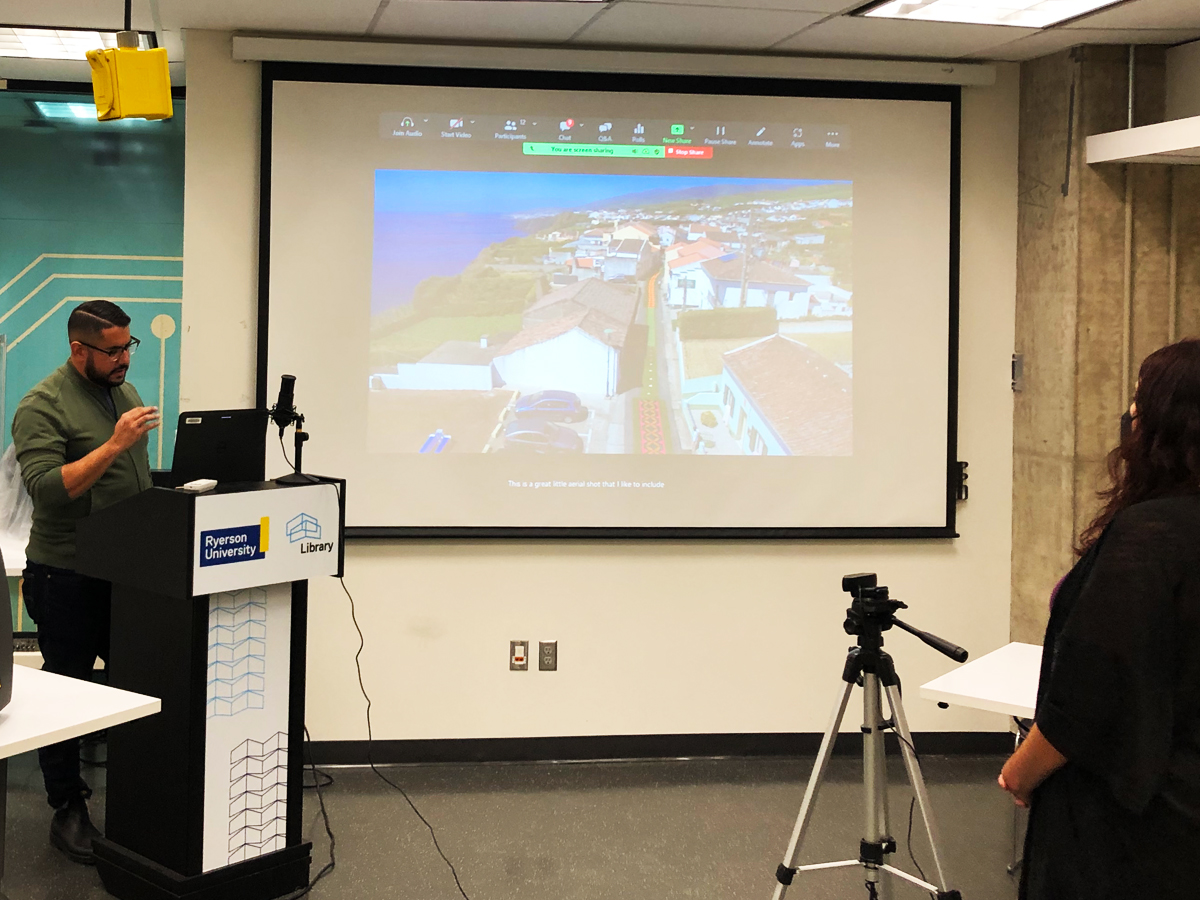Panel 2
Family Frames: Maintaining Connection Through Interpretation
Speaker: Danny Custodio
Beyond Borders and Hyphens: Using the Visual Arts to Theorize Spaces of Liminality
Speaker: Mehdia Hassan
Moderated by Alexa Vachon | 11:30 a.m. - 12:45 p.m.
Danny Custodio discusses his use of photography to explore familial histories and cultural traditions, reinterpreting them from his position as a second-generation Portuguese-Canadian in "Flower Carpets/Tapetes Floridos." At a remove from his parents' homeland and Toronto's Little Portugal where he was raised, the process maintains connection to his community while forging his own place.
Custodio created flower carpets like those found on the streets during annual religious festivals in São Miguel, Azores. Families adorn sections of the street in front of their home, arranging plants and coloured wood chips in designs passed down through generations. Using flora gathered across the Niagara region, the custom continues in Custodio’s studio, developing his own designs, incorporating family motifs and traditional Portuguese tile patterns. Custodio's lens affords an intimate view of these transient installations, drawing attention to individual elements of each flower carpet and the careful and intensive labour their creation entails.
How does conceptualizing diasporas as oceans enable us to reimagine the mobile spaces of identity formation, in relation to belonging? Mehdia Hassan's mixed media artwork Formations (2020) depicts the need to acknowledge the diversity and multidimensionality of intersectional identities, both within spaces of post-secondary education and socio-political spaces of the nation-state. Her artwork on the cover of eCampus Ontario’s 2021 Foresight Report on “Tomorrow’s Learners” highlights the significance of disrupting traditional modes of knowledge-making. Formations opens new pedagogical possibilities for imagining alternative futures for the mobility of Asian Canada (Mawani, 2018; Cho, 2008, p. 189). Hassan uses the aesthetics of oceans to theorize the ongoing, multiplex formations of my diasporic identities, as an Afghan Canadian and Asian Canadian; she also problematizes the prescription of hyphenated identities by the Canadian nation-state, through neoliberal multiculturalism (James, 2013; Mackey, 1999), and visually investigate liminal spaces of migration routes beyond the Canadian nation-state’s boundaries.
About speakers
